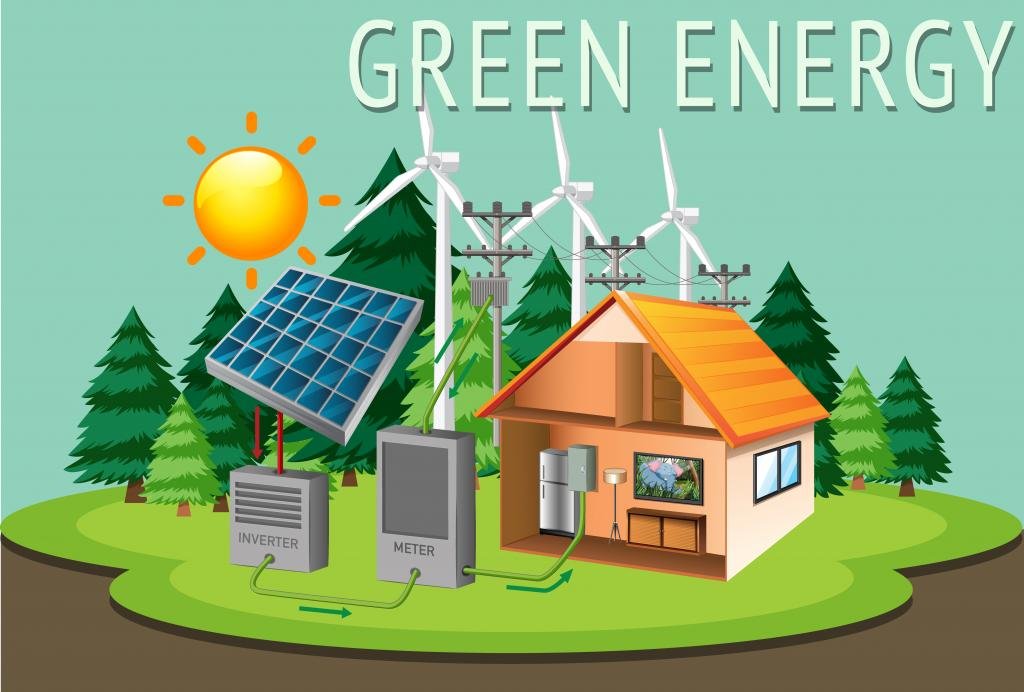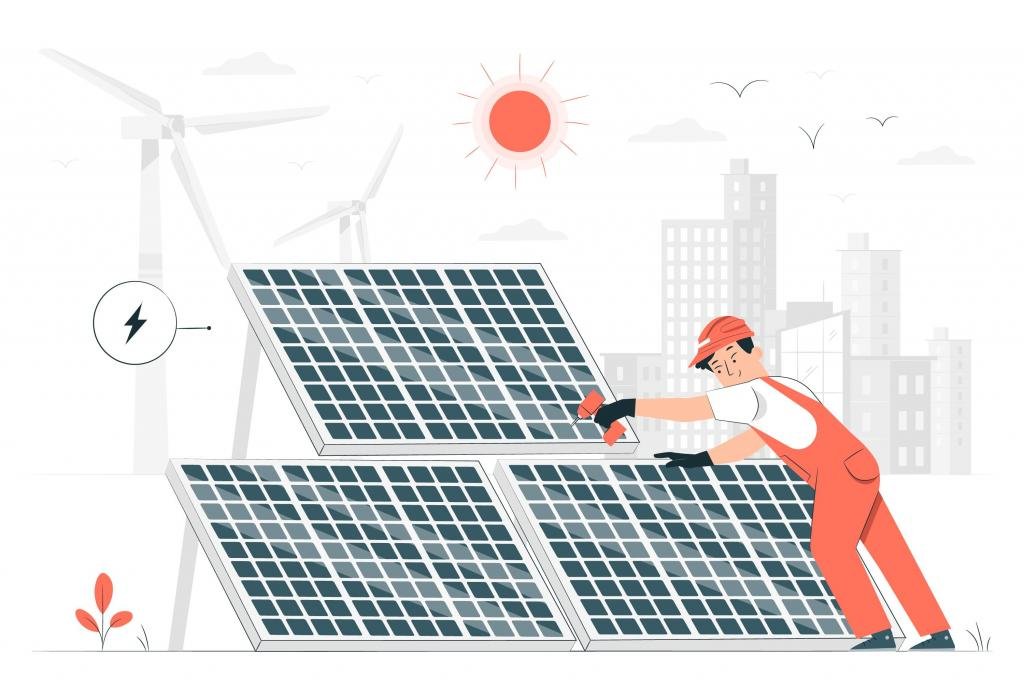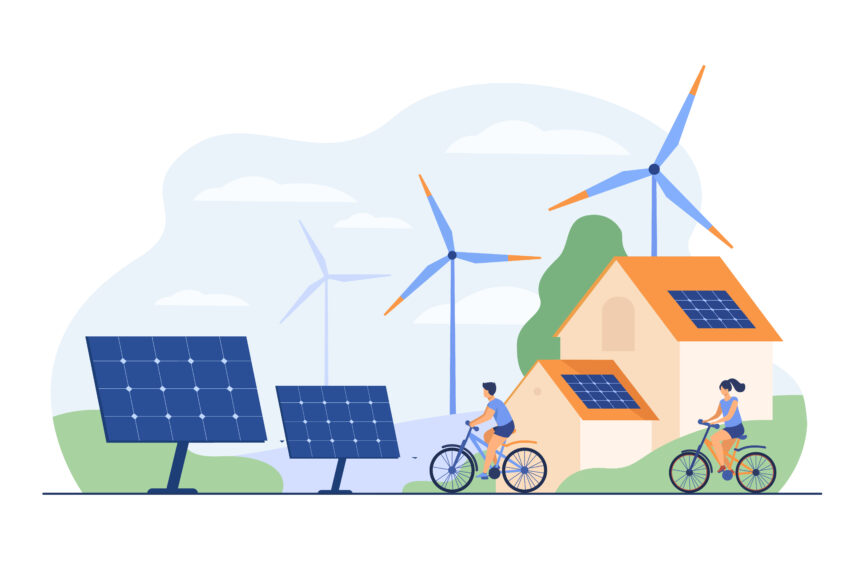How can we make sure that our growth is sustainable? For years, people have been looking for an answer to this question, and it seems like solar energy might be the key.
In the past, solar energy was not a common option for sustainable development because of its high cost. However, recent technological advancements have made solar energy more affordable and accessible. Solar energy has the potential to play a major role in sustainable development, and it is important to understand the benefits and limitations of this renewable resource.
This blog post will explore the role of solar energy in sustainable development and discuss some of the advantages and disadvantages of using solar power. Stay tuned!
⫸ What is solar energy and how does it work?
Solar energy is one of the most abundant sources of energy available. Solar energy is the energy that is in sunlight. Solar technologies can be used to generate electricity. Solar technologies are becoming more efficient and less expensive and it is being used in an increasingly diverse range of applications.
Solar energy is one of the most popular forms of renewable energy. It is considered to be a clean source of energy because it does not produce emissions. Solar technologies have the potential to contribute significantly to the goal of reducing greenhouse gas emissions. Solar power is also considered to be a very secure form of energy, as there are no moving parts and no fuel.

Solar panels are used to capture the sun’s energy and convert it into electricity. Solar panels are usually made of silicon, a material that is very good at absorbing sunlight. The sunlight hits the solar panel and produces an electrical current. This current is then sent to an inverter, which converts the DC into AC. The AC can then be used to power your home or business. Solar panels are a great way to reduce your carbon footprint and save money on your electricity bill.
⫸ The benefits of solar energy for sustainable development:
Solar energy for sustainable development is an amazing way to power your home while helping the environment. There are many benefits of solar energy for sustainable development. Solar energy is renewable, meaning it will never run out.
It also doesn’t produce harmful greenhouse gases. Solar panels have a very small carbon footprint. The solar panels used to power an average home has the same carbon footprint as two round-trip flights from New York to London!
Not only is solar energy good for the environment, but it is also very economical. The initial cost of solar panel installation can be expensive, but solar panels will save you money in the long run by reducing your electric bill.
Solar power is also increasingly becoming more available as technology improves and solar farms are built to provide solar power to even more homes and businesses. As solar energy becomes more popular and more available, it is sure to help sustainable development in a big way!
⫸ Role of solar energy to achieve the Sustainable Development Goals?
The 2030 Agenda for Sustainable Development, adopted by all United Nations Member States in 2015, provides a shared blueprint for peace and prosperity for people and the planet, now and into the future. At its heart are the 17 Sustainable Development Goals (SDGs), which are an urgent call for action by all countries – developed and developing – in a global partnership.
The SDGs cover a broad range of issues, including poverty, hunger, health, education, climate change, gender equality, water, sanitation, energy, environment, and social justice. Solar energy can help to achieve many of the SDGs, including those related to poverty, hunger, health, education, climate change, and social justice.
For example, solar energy can provide clean water and sanitation, affordable and clean energy, and decent work and economic growth. It can also help to ensure that no one is left behind.
Solar energy is a renewable resource that can be used to generate electricity, heat water, and provide other forms of energy for homes and businesses. It is one of the most abundant sources of energy in the world and has the potential to meet the needs of nearly all of humanity.
Solar panels are devices that convert sunlight into electricity. They are called solar panels because they are made up of solar cells. Solar panel technology has become more efficient and affordable in recent years, making solar panels a popular choice for generating renewable energy.
Each year, more solar panels are installed around the world as the technology becomes more affordable and efficient. In 2018, solar panel installations generated enough electricity to power 11 million homes in the United States alone. Solar panels are becoming increasingly popular as a way to generate renewable energy and reduce greenhouse gas emissions.
⫸ How solar energy is helping to improve the quality of life for people around the world?
Solar energy is one of the most abundant and renewable resources on our planet, and it has the potential to help improve the quality of life for people around the world. Solar systems can generate electricity without emitting pollutants or greenhouse gases, making them a clean and sustainable source of energy.
In addition, solar systems can be used to heat water, power air-conditioning units, and even cook food. Solar energy is also becoming increasingly affordable, as the cost of solar panels and other equipment continues to decline.

As more people adopt solar energy, we can expect to see a decrease in demand for fossil fuels, helping to protect our environment and improve public health. Solar energy is an essential part of a cleaner, brighter future for our planet.
⫸ Challenges facing the development of solar energy:
Solar energy is one of the most promising renewable energy sources. Solar systems can provide a clean and endless supply of power, making them an attractive option for reducing our reliance on fossil fuels.
However, solar energy faces several challenges that must be overcome before it can become a major player in the global energy market. Solar panels are currently quite expensive to produce, and thus the cost of solar power remains high.
In addition, solar panels require a large amount of space to generate significant amounts of power, which can be a challenge in densely populated areas. Finally, solar power is dependent on the weather, which means that it cannot provide a consistent and reliable source of energy.popp
Despite these challenges, solar energy remains a promising option for the future, and continued research and development are needed to make solar power a more viable option for meeting our energy needs.
⫸ The future of solar energy and its role in sustainable development:
Solar power can be a game-changer for the world’s poorest and most environmentally vulnerable people, but it needs to become more affordable. Worldwide investment in solar technologies is required at $45 billion per year just to meet universal access to clean energy sources like wind or micro hydroelectricity; this represents about half of one percent (0%) annual GDP growth rate according to World Bank calculations!
And yet despite these challenges global momentum continues apace – over 50% of new jobs have been created since 2010 because we know that saving money through energy efficiency makes economic sense even when there’s no market incentive available.
SDG 5 aims to empower all women and girls. This can be achieved through education, which increases entrepreneurial prospects for them in developing countries. It will provide access to electricity-powered solar systems installed at schools or community centers where they live – especially if the area also has other resources like running water available too!
As more opportunities arise because of these advancements against poverty aka “the lightbulb moment,” so does progress concerning gender equality: we’ve seen an increase of nearly 30% just last year alone when it comes to employment rates among females.
Solar power is a great solution for many of today’s problems. It can be scaled up to provide large amounts of it could just about light your way through the day with one simple glowing symbol on an app you own!
⫸ Conclusion:
Solar energy is one of the most promising sources of sustainable energy for the future. We must continue to research and develop solar technology so that it can be used in a variety of applications, from small-scale projects to large-scale endeavors.
We need your help to make this happen! Share this post and tell your friends about the role of solar energy in sustainable development. Together, we can create a brighter tomorrow for our planet and its inhabitants.
◉ FAQs:
1. What is solar energy?
Solar energy is the energy that is in sunlight. It is also called solar radiation.
2. What are the benefits of solar energy?
Solar energy can be used to generate electricity, heat water or air in homes and buildings, or produce solar fuels. It is a clean and renewable resource that can help reduce greenhouse gas emissions.
3. How do solar panels work?
Solar panels convert sunlight into electricity. They are made up of photovoltaic cells, which are made of semiconductor materials like silicon. When sunlight hits the solar panel, the photovoltaic cells absorb the sun’s energy and convert it into electricity.
4. What are the different types of solar energy?
Solar energy can be used to generate electricity (solar PV), heat water or air in homes and buildings (solar thermal), or produce solar fuels (solar chemistry).
5. What are the challenges of solar energy?
Solar energy is a renewable resource, but it is not always available. The amount of solar radiation that reaches the Earth’s surface depends on the time of day, the season, and the weather. It can also be more expensive than other forms of energy.
6. How does solar energy work?
Solar energy is captured by solar panels and converted into electricity. Solar panels are made up of photovoltaic cells, which are made of semiconductor materials like silicon. When sunlight hits the solar panel, the photovoltaic cells absorb the sun’s energy and convert it into electricity.
7. How can solar energy be used in sustainable development?
Solar energy can be used in sustainable development in several ways. It can be used to generate electricity, heat water or air in homes and buildings, or produce solar fuels. It can also help to reduce greenhouse gas emissions.
8. What are the challenges faced by solar energy in sustainable development?
Solar energy is a renewable resource, but it is not always available. The amount of solar radiation that reaches the Earth’s surface depends on the time of day, the season, and the weather. It can also be more expensive than other forms of energy. Additionally, solar energy technologies can have a negative environmental impact if they are not used or disposed of properly.


I agree that we must continue to research and develop solar technology so that it may be utilized in a range of applications, from small-scale initiatives to large-scale undertakings, since solar energy is one of the most promising sources of sustainable energy for the future. This is perfect because my mom’s solar panels were damaged during a recent storm, affecting the overall performance of her solar system. Concerned about the loss of energy production and potential safety hazards, she is urgently searching for a reliable solar system repair service to assess and fix the damage, restoring the functionality and efficiency of her renewable energy system.
I’m sorry to hear about the damage to your mom’s solar panels due to the storm. It’s indeed crucial to address such issues promptly, not only to restore the system’s efficiency but also to ensure safety. Solar energy is indeed a vital part of our sustainable future, and maintaining these systems is an important aspect of their long-term viability.
You made an interesting point when you mentioned that solar panels can be used to convert sunlight directly into electricity. I would imagine that it would be important to make sure that the surface of a solar panel is clean. I would imagine that a solar panel can’t absorb as much sunlight if the cells are obstructed by dirt.
You’re absolutely right, and your observation is spot on! The efficiency of solar panels in converting sunlight into electricity is indeed significantly affected by their cleanliness. Dust, dirt, bird droppings, and other debris can obstruct sunlight and reduce the amount of energy that solar panels can generate. This obstruction can lead to a noticeable decrease in their efficiency.